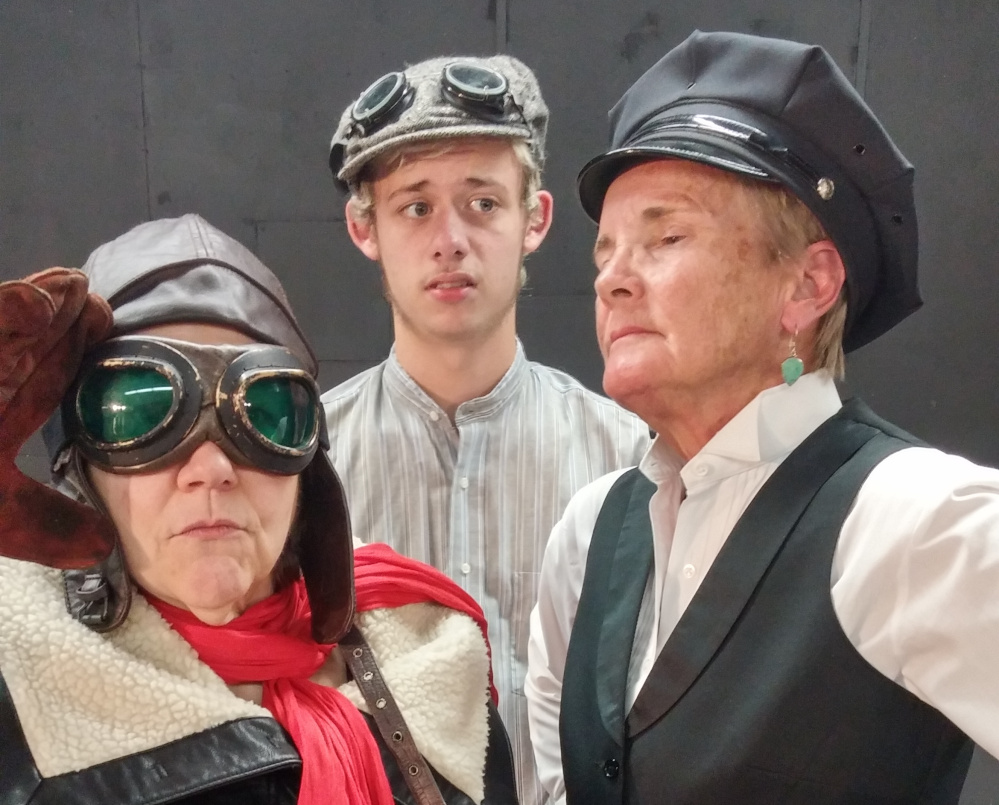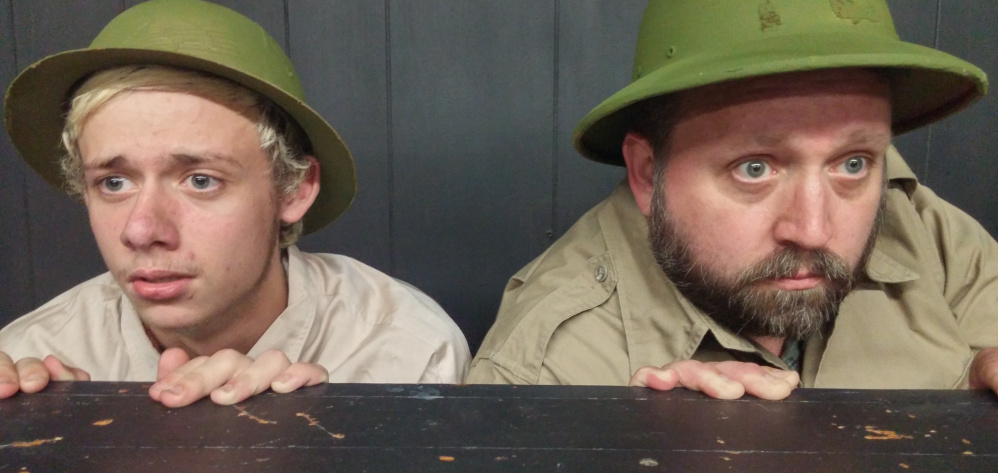With political and social unrest brewing in the United States and raging abroad, the Daytime Players are offering up a hard-nosed view of the horror and senselessness of war. Written and directed by Harley Marshall, “Billy Goes to War” follows the life and disillusionment of Billy Bunders (Ricky Brewster) on his journey from Kansas farm boy to World War I soldier.
The play aptly premiered over the weekend at the Schoolhouse Arts Center, formerly Standish’s high school. The 1914-built building is steeped in history that could tell stories of “the war to end all wars” and the barbarous wars that have followed. The Daytime Players give it a voice with Marshall’s politically charged play.
Saturday’s performance was a bare-bones production, staged in an upstairs black box theater that lives up to its name. The all-black set, composed of two small risers and a music stand, both foreshadowed the play’s dark subject matter and also served as a blank slate for the cast to weave the graphic tale.
“Billy Goes to War” is told through narration, with Penny Davis-Dublin narrating the tale and the actors pantomiming the action while providing personalized narration of their own. The play relies on the cast to verbally paint the images, with only costumes and limited props to help stir the imagination.
Marshall wrote the play to commemorate the 100th anniversary of World War I. It is densely packed with historical facts about telegraphs, aviation, casualties and the Spanish flu, using the character Billy Bunders as the catalyst and linchpin for major events. Marshall adds irony, making Billy the son of German immigrant Adolphus Bunders, played by Marshall. Along with World War I facts, he ties in references to the Spanish-American War and World War II to the present, with implied undertones about the current situation in North Korea.
The narrator opens the play by describing Billy as “the luckiest or unluckiest boy who ever lived.” Marshall allows Billy to survive catastrophic events, but heaps sobering tragedy after tragedy onto the character from birth to death, never letting him find true happiness.
Brewster tackles the role with genuine emotion, capturing Billy’s boyish curiosity and allowing the audience to witness the horror and pain of war through his tear-stained eyes. Ashley McBrearity gives a fine performance as a young nurse, Gladdy Prin, showing her character’s loss of innocence as the war progresses.
Chris Roberts stands out, giving a touching performance as Ethelred Strathroy. Like Billy, “Ethel” was born on July 4, 1900, in Haskell County, Kansas.
The play has several fascinating characters, including Sallie Chase as stunt pilot Ivo Prazzoli and Muriel Kenderdine as the town doctor, Doc Rexina Miner. Both give memorable performances, with Kenderdine nicely highlighting a woman in an atypical profession.
Marguerite Walker, Anne Miller and Barb Finn round out the cast, with Walker playing Billy’s mom, Louise Bunderswagen, and Miller and Finn bringing to life various town and war characters. The Camp followers were particularly poignant.
Marshall’s “Billy Goes to War” is an intense history lesson that implores the audience to remember how “weird” war is. It mixes in humor, but largely of the black variety, making the play unsettling food for thought in these darkening times.
April Boyle is a freelance writer from Casco. She can be contacted at:
aprilhboyle@yahoo.com.
Twitter: ahboyle
Send questions/comments to the editors.




Comments are no longer available on this story